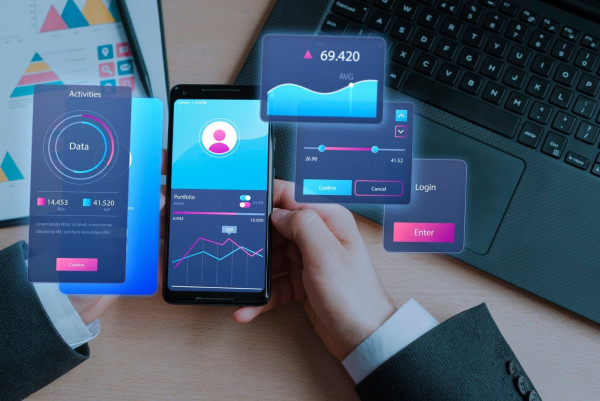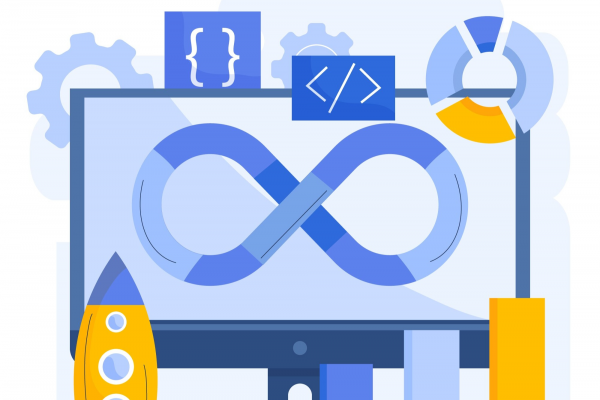In the realm of urban development, the concept of Smart Cities has gained significant traction in recent years. Smart Cities leverage cutting-edge technologies to optimize various aspects of urban life, including infrastructure, transportation, energy management, and public services. One of the pivotal technologies driving the evolution of Smart Cities is the Digital Twin concept. Digital Twins are virtual replicas of physical assets, processes, or systems that enable real-time monitoring, analysis, and simulation. In the context of Smart Cities, Digital Twins play a crucial role in enhancing efficiency, sustainability, and resilience.
Smart Infrastructure Management: Digital Twins facilitate the monitoring and management of critical infrastructure components such as bridges, roads, and buildings. By integrating sensor data with virtual models, city authorities can detect anomalies, predict maintenance needs, and optimize resource allocation. According to a report by Fortune Business Insights, the global market for Digital Twin technology is projected to grow from USD 17.73 billion in 2024 to USD 259.32 billion by 2032.
Traffic Optimization: Traffic congestion is a persistent challenge in urban areas, leading to wasted time, increased pollution, and economic losses. Digital Twins offer a solution by providing real-time insights into traffic flow, vehicle movements, and road conditions. By analyzing this data, city planners can implement dynamic traffic management strategies, optimize signal timings, and even simulate future scenarios to anticipate traffic patterns.
Energy Efficiency: With the rise of sustainable energy initiatives, Smart Cities are increasingly focused on optimizing energy consumption and reducing carbon emissions. Digital Twins enable precise monitoring of energy usage across buildings, streetlights, and other infrastructure assets. By simulating energy-saving measures and identifying inefficiencies, cities can achieve significant cost savings and environmental benefits. According to the International Energy Agency (IEA), energy efficiency is currently seeing a strong global focus among policy makers in recognition of its important role in enhancing energy security and affordability, and in accelerating clean energy transitions.
Urban Planning and Development: Digital Twins revolutionize the urban planning process by providing comprehensive insights into land use, zoning regulations, and infrastructure requirements. City planners can create virtual models of proposed developments, assess their impact on the surrounding environment, and solicit feedback from stakeholders. This approach enhances transparency, fosters collaboration, and ensures that urban growth is sustainable and inclusive.
Water Management: Efficient water management is critical for ensuring a sustainable supply of clean water and mitigating the risks of floods and droughts. Digital Twins enable municipalities to monitor water distribution networks, predict demand patterns, and optimize resource allocation. By simulating various scenarios, city authorities can develop proactive strategies for water conservation and crisis response.
Public Safety and Emergency Response: Digital Twins enhance public safety by enabling real-time monitoring of crime incidents, crowd dynamics, and emergency situations. By integrating data from surveillance cameras, social media feeds, and IoT sensors, law enforcement agencies can detect anomalies and deploy resources more effectively. During emergencies such as natural disasters or terrorist attacks, Digital Twins provide invaluable support for evacuation planning, resource allocation, and post-event analysis.
Waste Management: Effective waste management is essential for maintaining cleanliness, reducing pollution, and preserving public health in urban areas. Digital Twins enable municipalities to track waste generation rates, optimize collection routes, and monitor landfill capacities. By leveraging predictive analytics, cities can identify opportunities for waste reduction, recycling, and resource recovery. According to Statista, the global waste management industry is one of the most important in the world, and had a market value estimated at 1.6 trillion U.S. dollars in 2020.
Community Engagement and Citizen Empowerment: Digital Twins empower citizens to actively participate in the decision-making processes that shape their communities. By providing access to virtual models and real-time data visualizations, cities can foster greater transparency, trust, and collaboration with residents. Citizen feedback and input can inform urban planning initiatives, infrastructure projects, and policy decisions, ultimately leading to more inclusive and responsive governance.
CONCLUSION
Digital Twins are poised to revolutionize the way cities are planned, managed, and experienced. By harnessing the power of data, analytics, and simulation, Smart Cities can optimize infrastructure, enhance services, and improve the quality of life for residents. As the world becomes increasingly urbanized, the adoption of Digital Twin technologies will be instrumental in addressing the complex challenges facing cities and building a more sustainable and resilient future. By partnering with STL Digital, our Digital Twin solution helps you manage your physical entities effectively using it virtual twin.



